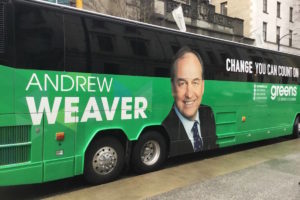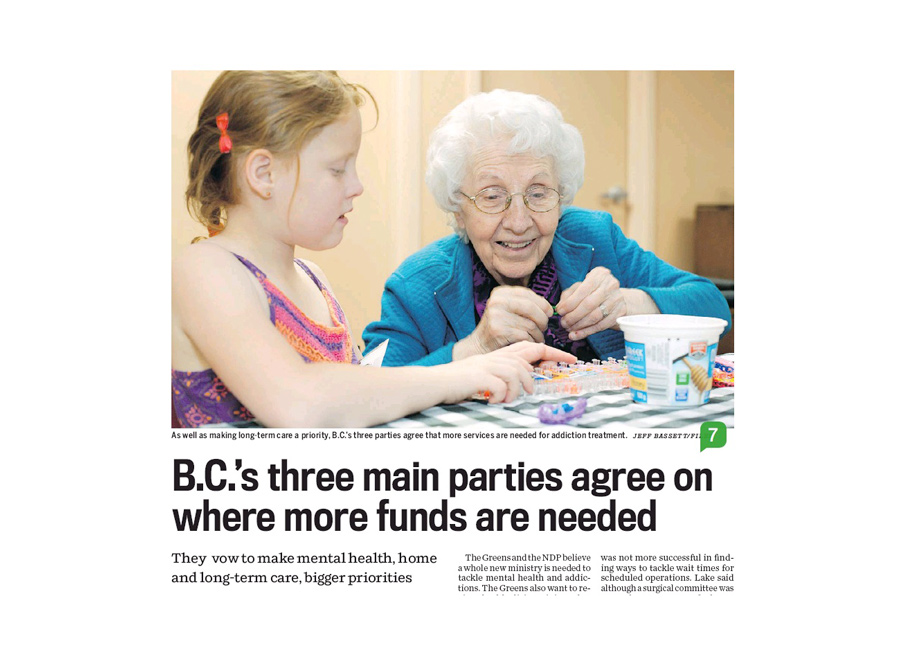The B.C. election is now over and the dust is settling after a hard fought campaign. Still, the public will not know for a few weeks which party will officially form the next government.
That doesn’t mean, however, there are not a few lessons to be gleaned from last night’s interim results.
The greatest divide between all three parties appeared to centre around major infrastructure projects such as Site C Dam, or the Massey Bridge.
 British Columbians, on the other hand, by-in-large cared more deeply about the issues that bring us together, not those that divide us. By electing a minority government, voters should now expect all of our politicians to seek common ground and focus on what matters to them.
British Columbians, on the other hand, by-in-large cared more deeply about the issues that bring us together, not those that divide us. By electing a minority government, voters should now expect all of our politicians to seek common ground and focus on what matters to them.
BC’s three main parties agree on where more funds are needed. They vow to make mental health, home and long-term care bigger priorities – Vancouver Sun, April 29th, 2017
While the political parties remain miles apart on multiple environmental and economic issues, there are some issues where the differences between the BC Liberals, BC NDP and BC Green Party are paper thin, whether you live in an urban setting or a rural community.
To keep voters happy, all three political leaders would be wise to heed where these areas of consensus are.
 Our members will appreciate that on the issue of seniors care, all parties were for the most part aligned. Perhaps because there was so much agreement, voters heard very little discussion about seniors on the campaign trail over the last several weeks.
Our members will appreciate that on the issue of seniors care, all parties were for the most part aligned. Perhaps because there was so much agreement, voters heard very little discussion about seniors on the campaign trail over the last several weeks.
All three political parties agree that significantly more needs to be done to increase the level of care provided at the bedside for B.C. seniors. There is also agreement that we need to make additional investments in home care, residential care, and assisted living if we are going to meet the needs of our rapidly aging population.
All parties support the idea that we need do a better job of training the care workers, and that we are running the risk of not having enough staff to care for our seniors. The status quo is simply not good enough, and we must put more effort into recruiting and retaining care workers.
A major report released by Statistics Canada during the campaign highlighted the important need to set aside partisan politics and begin taking action. It revealed that for the first time in our history, there are now more people over the age of 65 than under 14. With fewer working age adults, Canadians will struggle to afford quality publicly-funded seniors care.
The challenge cannot be more stark. British Columbians on average are all getting older, and there simply are not the necessary supports in place to effectively deal with it.
 That is why I hope that with the election now behind us, and a more cooperative approach to governing on the horizon, how we look after our seniors will get the attention it needs.
That is why I hope that with the election now behind us, and a more cooperative approach to governing on the horizon, how we look after our seniors will get the attention it needs.
While some of us look at minority governments and see them as “hung parliaments” where nothing gets done, I see an opportunity for positive change – especially with how we care for our seniors.
The BC Care Providers Association is committing to work with all 87 MLAs in order to find ways to better support our seniors, and the family members whom they depend upon. Whoever forms the next B.C. government, BCCPA will be there to work alongside with them to strengthen care for our seniors.




